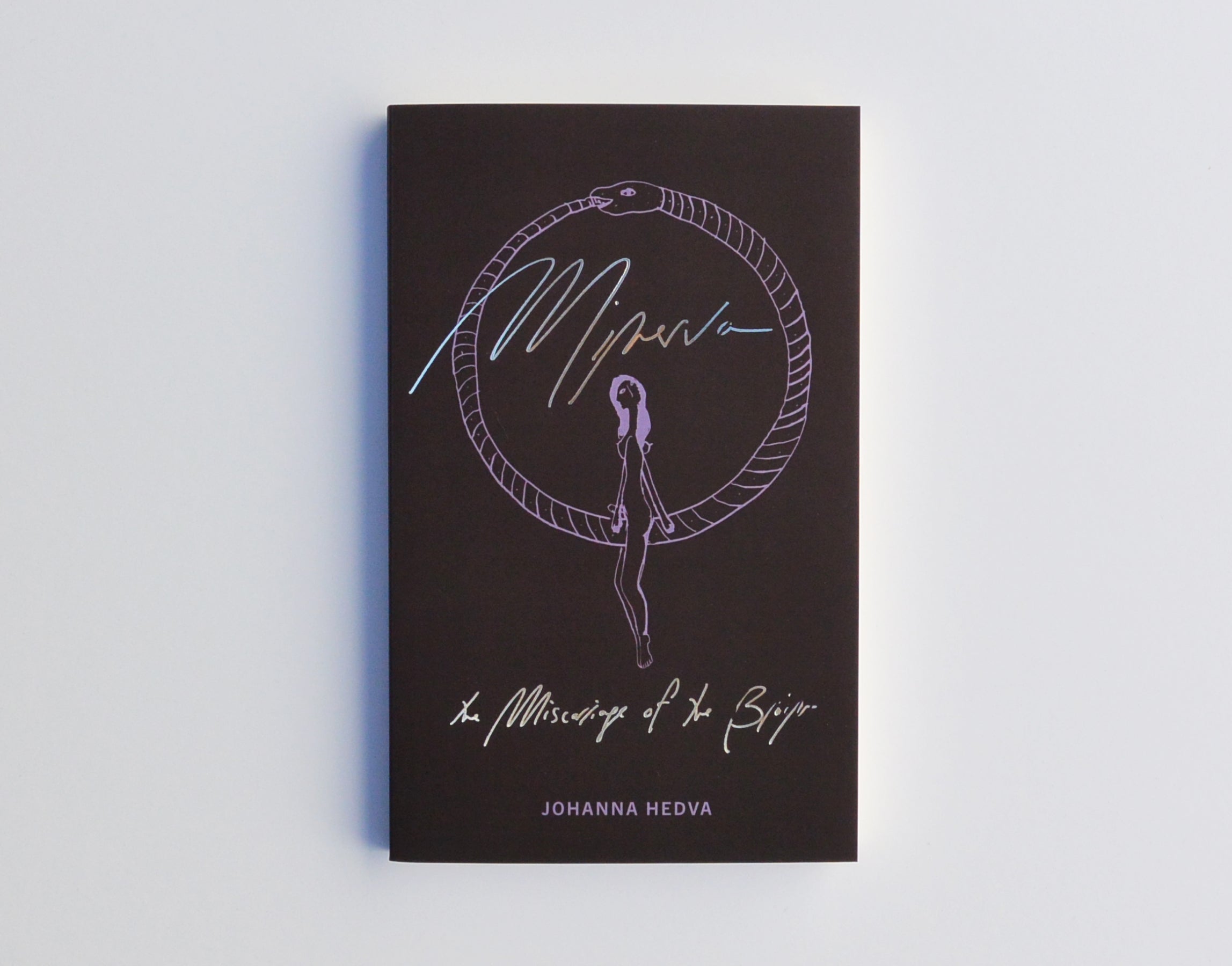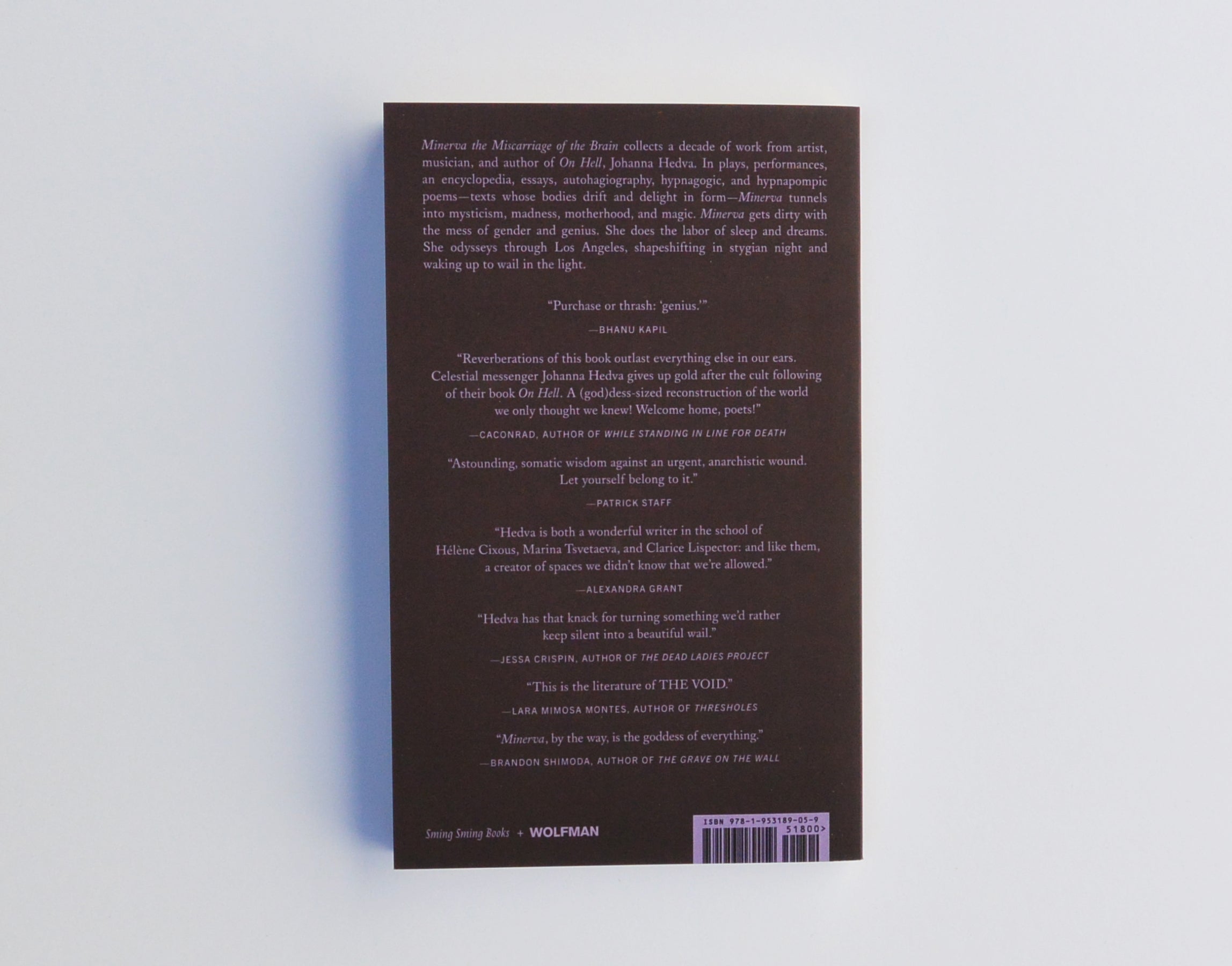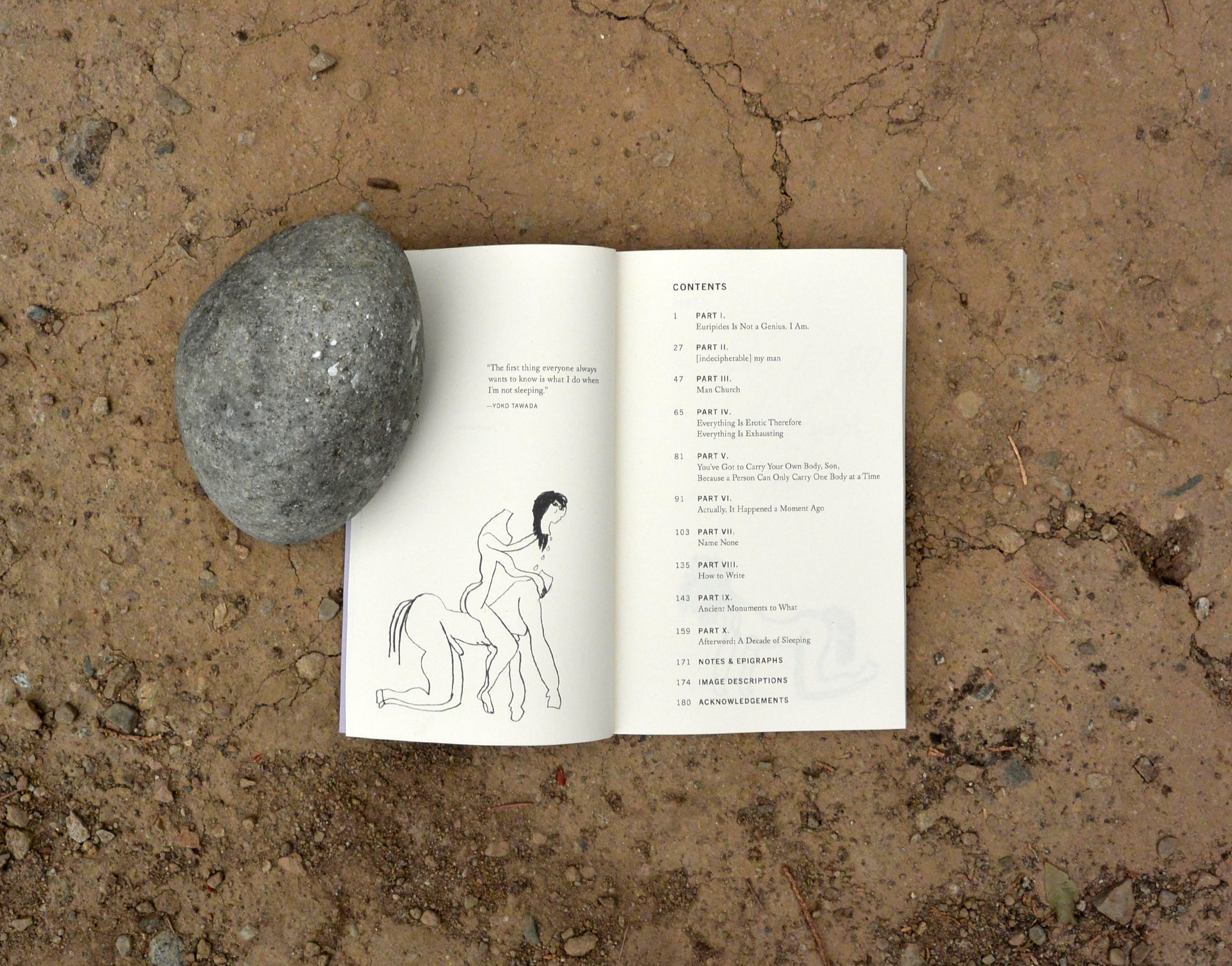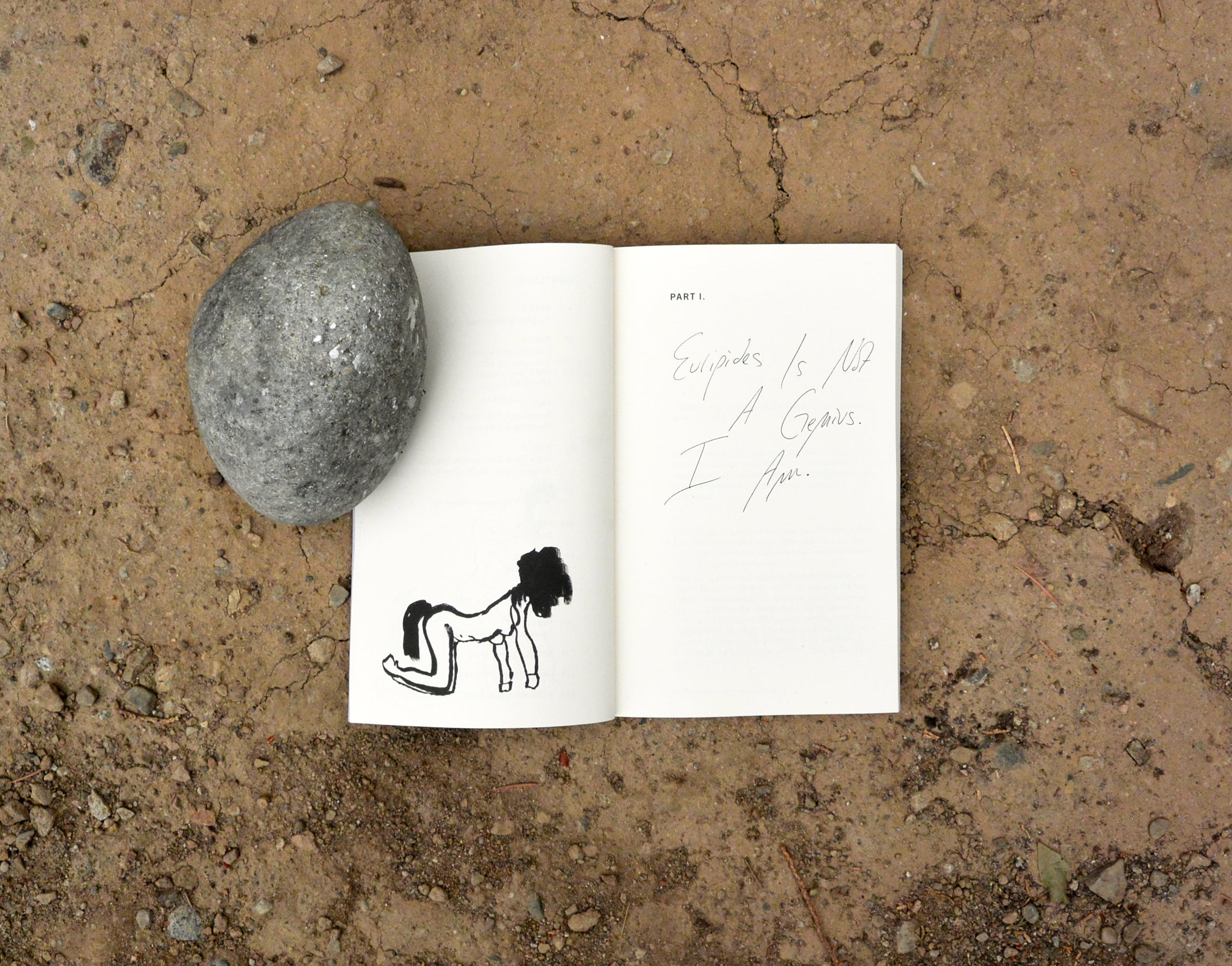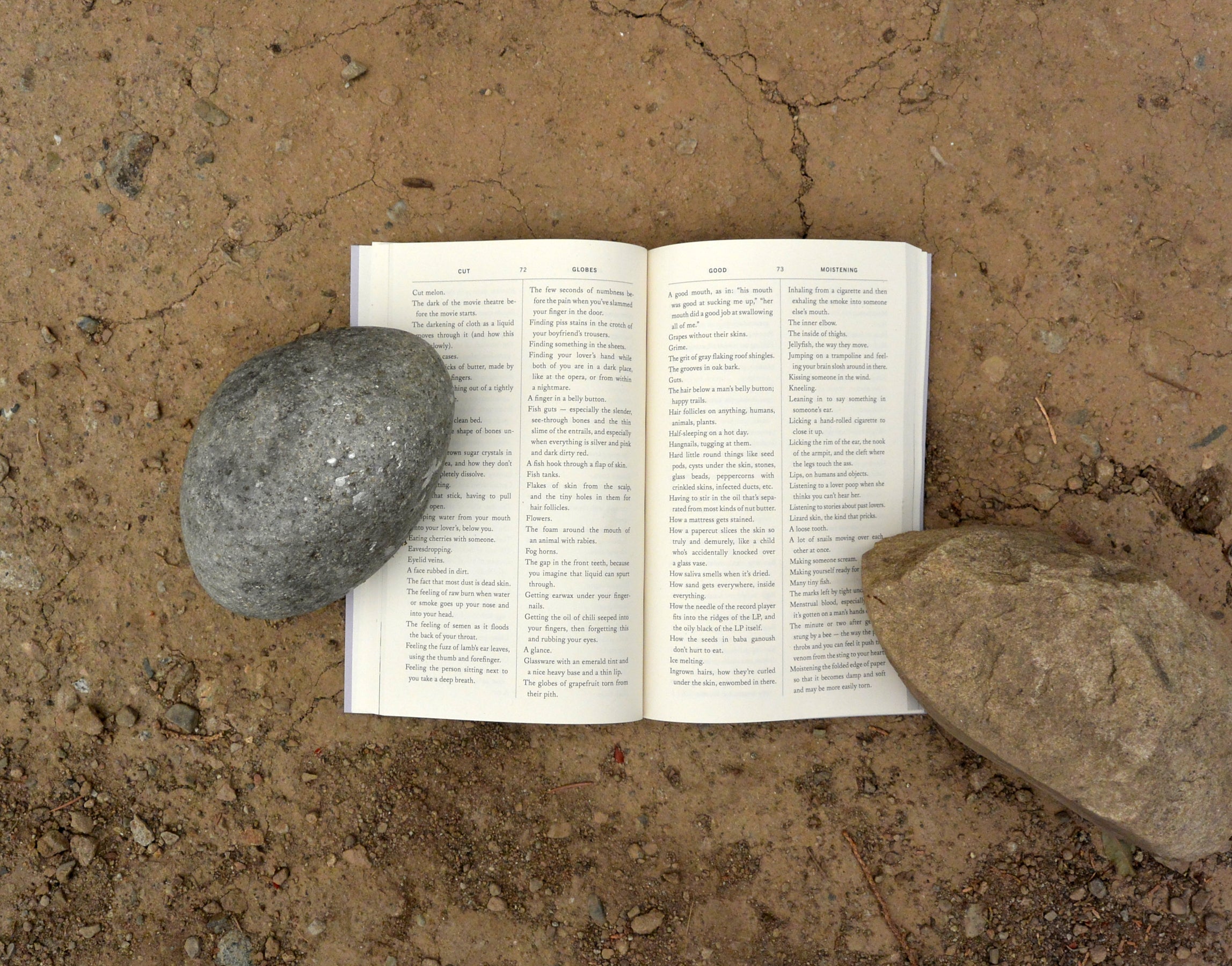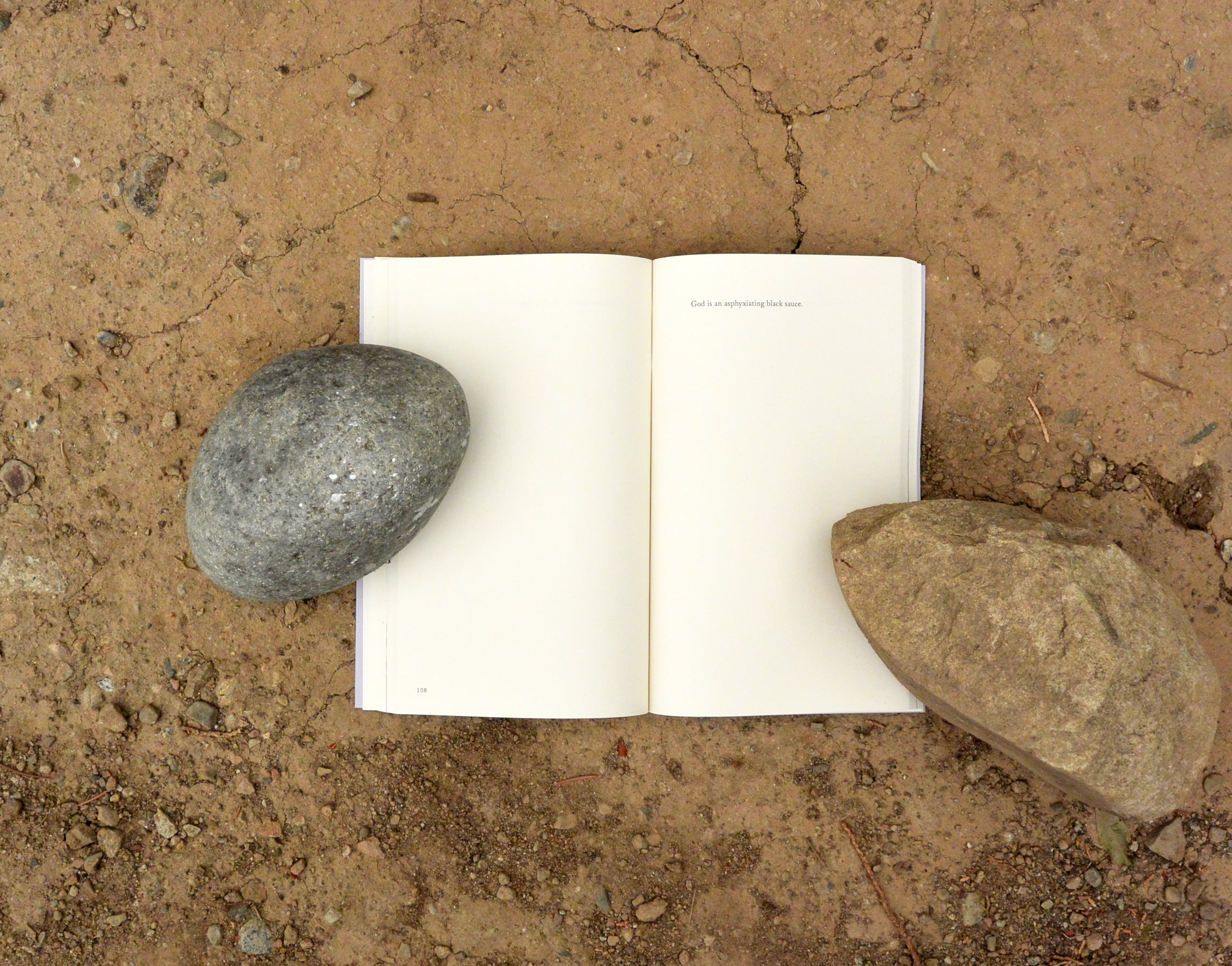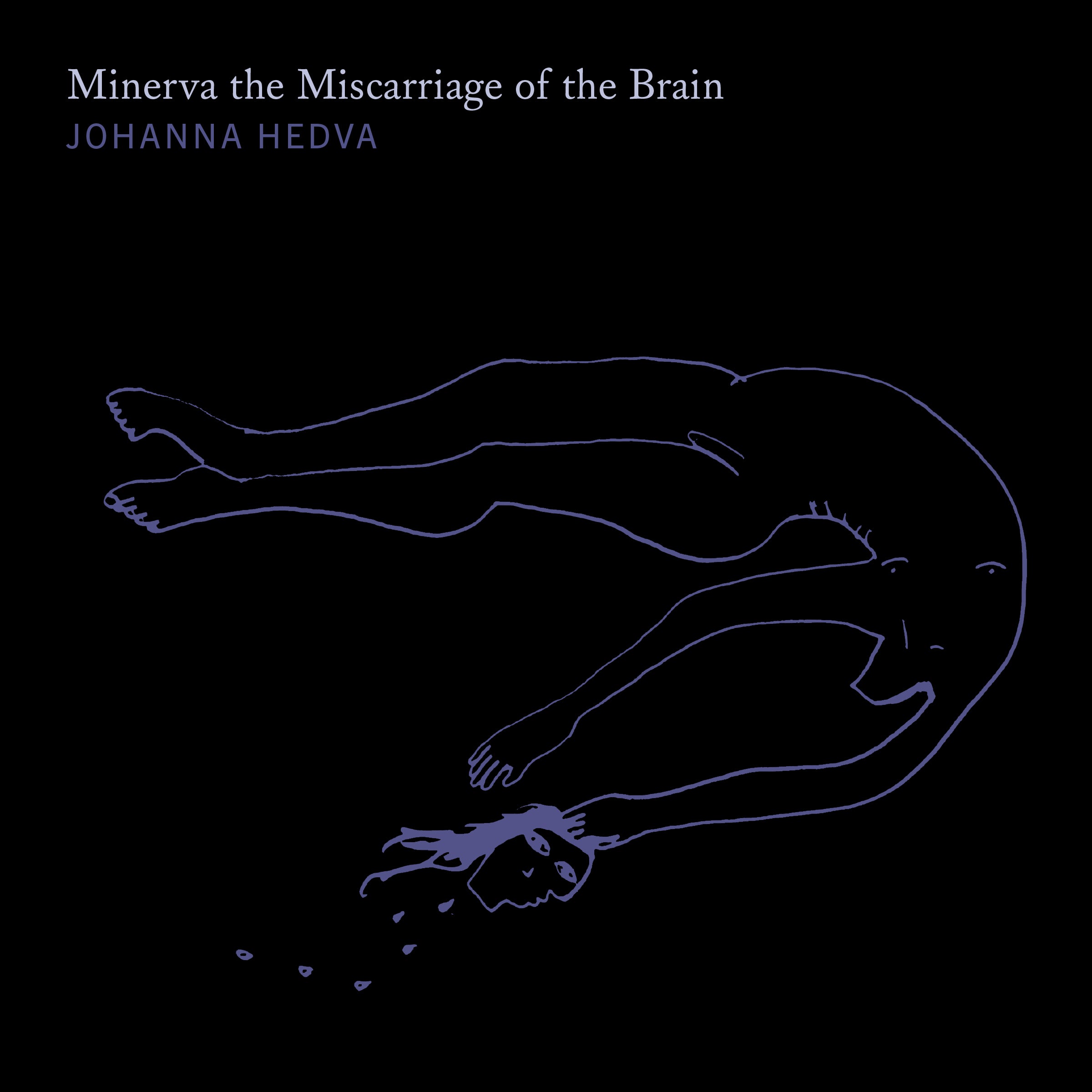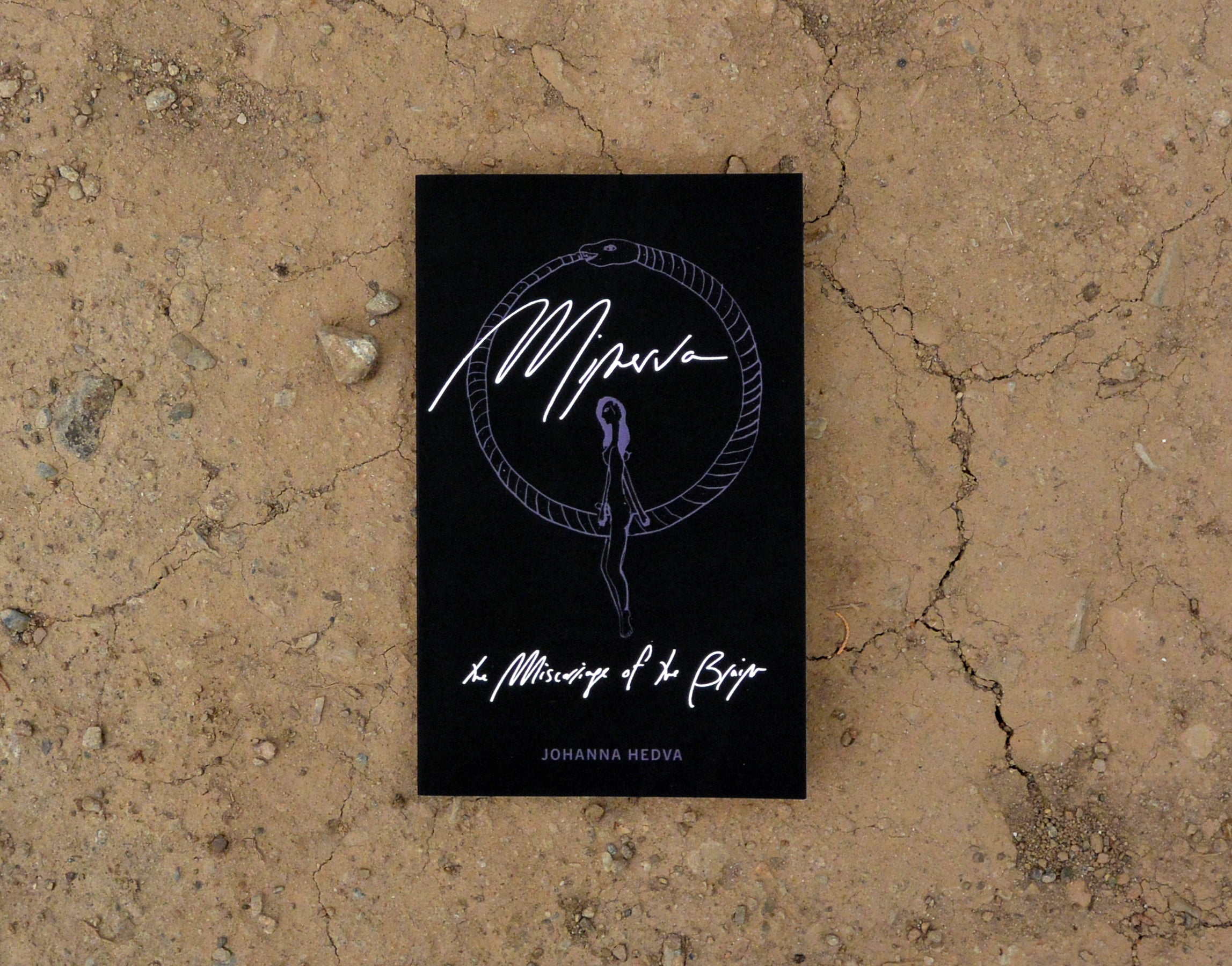Johanna Hedva: Minerva the Miscarriage of the Brain
Sming Sming Books + Wolfman Books
Second Edition:
ISBN 978-1-953189-05-9
October 2022, English, 5 x 8 in, 196 pages, b&w, softcover
First Edition:
ISBN 978-1-953189-00-4
E-ISBN: 978-1-953189-01-1
September 2020, English, 5 x 8 in, 194 pages, b&w, softcover
Audiobook: 47 tracks, 4 hrs 46 min
Design: Sming Sming Books
Illustrations: Isabelle Albuquerque
Co-published with Wolfman Books!
Distributed in the UK and Europe by Parrhesiades
Minerva the Miscarriage of the Brain collects a decade of work from artist, musician, and author of On Hell, Johanna Hedva. In plays, performances, an encyclopedia, essays, autohagiography, hypnagogic, and hypnapompic poems—texts whose bodies drift and delight in form—Minerva tunnels into mysticism, madness, motherhood, and magic. Minerva gets dirty with the mess of gender and genius. She does the labor of sleep and dreams. She odysseys through Los Angeles, shapeshifting in stygian night and waking up to wail in the light.
The audiobook is narrated by Johanna Hedva and features tracks from Anja Kanngieser, Geneva Skeen, Pauline Lay and Gabie Strong, and William Fowler Collins.
“Purchase or thrash: ‘genius.’ Relocate an ‘Ancient Greek text’ to ‘contemporary Los Angeles.’ Does a geographical cure excrete ghosts, ‘visions of strange bodies poised and moving,’ or does it produce a ‘deep, reverberating sound?’ Johanna Hedva’s Minerva begins in this place and we go there, which is to say a reader does. Or might: float/trust this process of alchemical, pelvic, infinite, sub-maternal, and ceramic change.”
—Bhanu Kapil
“Reverberations of this book outlast everything else in our ears, ‘what felt like a skinned, feral cat breaching from my chest.’ Definitely Minerva, goddess of genius and poems! Celestial messenger Johanna Hedva gives up gold after the cult following of their book On Hell. A (god)dess-sized reconstruction of the world we only thought we knew! Welcome home, poets!”
—CAConrad, author of While Standing in Line for Death
“Blood is spilled: the writer, the reader, the family, and the lovers are all brutally disemboweled. Abandonment, undeath, catharsis, and genius are all held to trial. Theatre, ritual, and memoir are cleaved open by sex, race, and the (mortal) body. Minerva, as in all their writing, sets Hedva’s astounding, somatic wisdom against an urgent, anarchistic wound. Let yourself belong to it.”
—Patrick Staff
“Can an artist’s personal history of their performances be a history of performance art? Minerva the Miscarriage of the Brain traces both a decade of Johanna Hedva’s performed works and the edges of that genre’s history: bringing the intimate, fearful, feminine, traumatized, queer, and real-life-lived to look and admire and poke at the assumptions about what performance art has been: genius, unreachable, masculine, and hermetic. Hedva is both a wonderful writer in the school of Helene Cixous, Marina Tsvetaeva, and Clarice Lispector: and like them, a creator of spaces we didn’t know that we’re allowed.”
—Alexandra Grant
“This text is a trouble-maker. Well, that’s not quite right. The trouble was already there, we were just trying to hang a tapestry over it, maybe shove it into the dirt of our potted plant. Hedva has that knack, though, for revealing, for turning something we'd rather keep silent into a beautiful wail.”
—Jessa Crispin, author of The Dead Ladies Project
“A book about viscera and black ash; ‘Blood and guts… soul and tears.’ Dark matter and sea foam blessed by ‘the tentacles of sea plants when they move…’ This is the literature of THE VOID. I will treasure Minerva as I do the most revelatory writings of Artaud.”
—Lara Mimosa Montes, author of Thresholes
“I have this fantasy that upon our deaths, we each are replaced with a museum. And that in the museum, is a record, in relics, of what we made, tried to make, failed to make, and what made us. Johanna Hedva’s Minerva affirms and animates this fantasy, overlapping rapturous corporeality with the posthumous archive. It is the nomination of a life’s work of laying bare negative space by way of the nebulization of the body into a museum. (Minerva, by the way, is the goddess of everything.)”
—Brandon Shimoda, author of The Grave on the Wall
Johanna Hedva is a Korean-American writer, artist, musician, and astrologer, who was raised in Los Angeles by a family of witches, and now lives in LA and Berlin. They are the author of the novel, On Hell (2018). Their work has been shown at The Institute of Contemporary Arts in London, Performance Space New York, the LA Architecture and Design Museum, and the Museum of Contemporary Art on the Moon. Hedva’s writing has appeared in Triple Canopy, frieze, and The White Review, and is anthologized in the Documents of Contemporary Art series by Whitechapel. Their essay “Sick Woman Theory,” published in 2016 in Mask, has been translated into six languages. Their albums are The Sun and the Moon (2019) and Black Moon Lilith in Pisces in the 4th House (2020).
